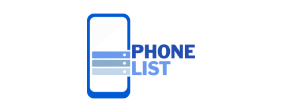Reliable content quality research
To effectively evaluate the content on a website for SEO purposes , you must first thoroughly analyze its quality. High-quality content not only engages users, but is also crucial for positioning. Valuable and unique content should be well-thought- amazon database out, well-written, and properly structured. Check whether your articles, product descriptions, or blog posts are accurate, informative, and whether they answer the questions of potential customers . Remember that the uniqueness of content is important not only from the point of view of the recipients, but also Google’s algorithms, which penalize duplicate content.
Keyword optimization
An element that definitely affects the positioning of a website is the appropriate use of keywords. It is no longer about their excessive density, which can work against you, but about their strategic placement. Key phrases should appear in titles, headings, meta descriptions and in the first paragraphs of the text. Keywords correspond to the page by Google robots queries entered by how to do smarketing in your company users in the search engine, so their effective selection is essential. Use keyword analysis tools such as Google Keyword Planner to choose the most relevant ones.
Analysis of content structure and usability
When evaluating content, the aspect of structure and usability cannot be ignored. A clear structure of content using clear headings, bullet lists and page by Google robots distinguishing features allows readers to absorb information faster, and also helps Google robots understand the hierarchy and importance of individual parts of the text. This is crucial for building user experience and SEO, because well-organized content contributes to better indexing of the page .
Using multimedia in the context of SEO
Enriching your content with multimedia such as photos, graphics, or videos can significantly increase user engagement and improve your site’s positioning. However, this is a double-edged sword – overloading your site with a large amount of multimedia can increase its loading time, which adversely affects Google’s algorithm rating. Make sure all multimedia files are optimized for size and have appropriate alt tags , which describe the content of images and are an important element for SEO.
Conducting a thorough content audit of your site is the foundation for achieving success in Google rankings. It not only provides a better understanding of your audience’s needs, but also provides valuable tips on how to improve your site’s visibility in search results. Regularly monitoring and adapting your content to changing search engine b2c fax algorithms will allow you to gain a competitive advantage and achieve your intended marketing goals.
The Importance of Meta Tags in Google Ranking – Analysis in Audit
Meta tags play a critical role in the process of optimizing a website for search engines, and their detailed analysis is an essential element of every professional SEO audit. They help to clearly present the content of the page to Google robots, which directly translates into positions in search results.
Essential and Optimized Meta Tags
One of the key aspects of an SEO audit is to check that all pages on your site have properly filled out meta tags, such as meta title and meta description . The title of the page should contain the most important keyword, be unique for each page and not exceed 60 characters, which ensures its full display in search results. The meta description is a short summary of the page’s content and should encourage clicking, while not exceeding 160 characters. Both of these tags are crucial for CTR (Click-Through Rate) , which can affect the page’s ranking.
Advanced Meta Tags and Their Impact on SEO
In addition to basic tags, an audit should also include analysis of elements such as meta robots and meta keywords . The robots tag indicates to search engines whether a page, or specific parts of it, should be indexed or skipped for some reason. Meta keywords, on the other hand, have been minimized due to past abuse, but some experts believe they can still have a limited impact on positioning in smaller search engines.
Optimizing individual meta tags is therefore a process that requires care and precision, which should be regularly monitored and adjusted to changing Google algorithms and SEO market trends. The results of this process often reflect on the quality and visibility of the website on the Internet, which can attract more traffic and potential customers.
Meta Tag Analytics and Performance Measurement
It is also important to analyze the effectiveness of the meta tags used. Tools such as Google Search Console help monitor how users found the page and which meta tags were most effective. This allows iterative improvement of meta tags to increase their effectiveness and better adapt to the requirements of Google algorithms.
Completing an SEO meta tag audit should result in the creation of a detailed optimization plan, which is crucial to improving your site’s visibility and position in search results. Remember, meta tags are the foundation for any well-optimized website, and using them properly can significantly impact your site’s success in Google rankings .
Importance of proper indexability for SEO
There is no doubt that the indexability of a website has a direct impact on its visibility in search results. It is the accessibility to search engine robots that determines whether your content will be included in the Google index, and consequently whether users will be able to find it on the web.
Steps to verify the indexability of a page
There are a number of steps you can take to verify your page’s indexability . The first and most basic is to check your robots.txt file , which directs crawlers to the appropriate areas of your site. Make sure it doesn’t contain directives that block sections of your page that are important to you from being indexed. The next step is to use the URL Inspection Tool in Google Search Console , which allows you to directly test how Googlebot sees individual pages.

